Here is what our alumni have to say about their microbiology degree and how it is influencing their current careers!
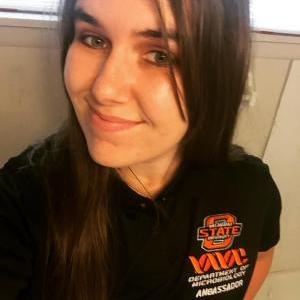
Name: Kayla Kifer
Email: kkifer@okstate.edu
Kayla is a Medical Laboratory Scientist at Saint Francis Hospital in Tulsa. "The Microbiology labs at OSU helped me gain confidence in performing laboratory testing and handling infectious microbes. I was then able to transfer my experience to a clinical setting. I'm about to complete a one year clinical internship at the Saint Francis School of Medical Laboratory Science in Tulsa. This will allow me to obtain a national MLS certification through the American Society for Clinical Pathology. My favorite class during undergrad was Pathogenic Microbiology Lab. The class gave me a solid foundation in identifying pathogenic bacteria, and I can use that information while at my job in the Saint Francis Microbiology Department. Thanks, Dr. Lutter!" Kayla's advice to students is this: "a positive attitude changes everything. Even when you feel overwhelmed with your classes, take a moment to remember how excited you were when you got your acceptance letter or when you toured campus for the first time. It will get better, I promise! Take the time to thank everyone involved in helping you achieve your educational goals. Your professors and advisors (especially Dana) work hard, and they want to see you succeed!"
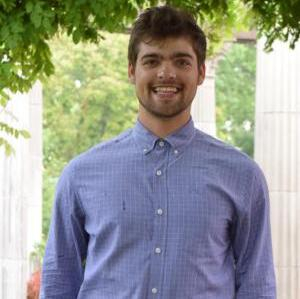
Name: Nicholas Nelson
Email: nick.h.nelson@gmail.com
Nicholas is a Research Associate at the Broad Institute of MIT and Harvard. "My degree in Mircobiology led me to my current career by exposing me to a variety of different classes in order to provoke my scientific understanding. I was fortunate enough to work for Dr. Erika Lutter in her lab to gain hands on knowledge and experience. My career started in her lab and with that experience it has provided me with the knowledge to get into a world-renowned research institute in The Broad. My favorite classes were Dr. Lutter's 4990 and conducting Undergraduate research. They helped me immensely. My advice to students is to try and think about possible careers early and try to intern at a company even if it may not be right in your wheelhouse. I think the biggest thing is finding a career that best suits you and what you want to get out of it. Always have an open mind and a keen ear, listening is such an important quality. Also to have a hardworking attitude and have the mindset that nothing will be handed to you. The last thing is to truly enjoy your time at OSU, there truly is no other place like it."
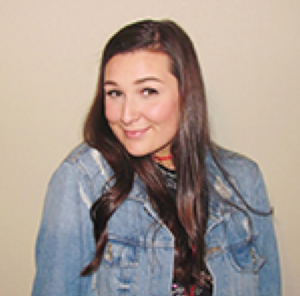
Name: Jimmre Hambright
Email: Jimmre.hambright@okstate.edu
Jimmre is currently a Laboratory Technician. "Getting so much lab experience with our program made me love it even more and want to be in that environment past college. So, I looked for a part time job while in college and found Accurate Labs and their connection to OSU made it even better that I was then offered a full time job prior to graduation in their other location in Tulsa." Jimmre's favorite classes are: "any of Dr. Youssef’s lectures or Intro to Micro Lab because I love the unknown discovery process." Jimmre's advice to students is to "connect with your classmates because networking is so important and get as much lab experience as possible becasuse you remember hands on skills so much better than reading multiple textbooks! Science majors don’t have to just do med school! There are so many lab opportunities if you just look for them! 23 and me genetics lab is in California, Water Testing and Medical Marijuana testing is going to grow Oklahoma’s labs exponentially so get into that while it’s new!"
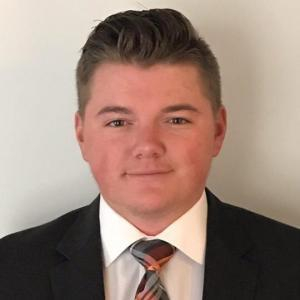
Name: Delton Hall
Email: delton.hall@okstate.edu
Delton is a Medical Student at Texas Tech University Health Sciences Center. "I've always had an interest in the human body; furthermore, a degree in Microbiology has allowed me to learn more about the human body, as well as the pathologies that can cause the body to malfunction. I've always had my eyes set on a career in medicine. A microbiology degree just confirmed my passions. I also obtained a degree in biochemistry. This degree expanded my knowledge more on the cell. Knowing the most basic function of hows cells work allowed me to have a great foundation on the functions on the cell. The microbiology degree expanded that knowledge and was applicable to numerous cells. My favorite class was Antibiotics (Cell walls) with Dr. Cabeen. This man was absolutely amazing and enthusiastic with his teaching. Antibiotics took biochemistry, the molecular mechanisms of antibiotics, and microbiology, the bacteria resisting the antibiotics, to provide a knowledgeable course that expanded my knowledge on the fight of antibiotic-resistant bacteria. Delton's advice to students is as follows: "If Microbiology isn't something you're passionate about, it's going to be difficult to keep up with the coursework. Keep at it, enjoy what you do, and four years will fly by. Oklahoma State has been the best experience I could have ever dreamed of. I've developed more as a person here in four years than I have in other parts of my life. Take advantage of everyday you have here, because it will pass before you know it."
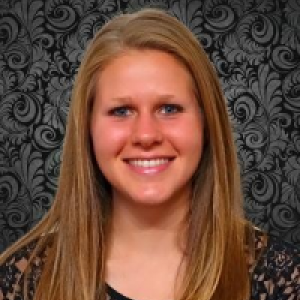
Name: Ashley Simenson
Email: ashley.j.simenson@gmail.com
"I initially sought a Master of Public Health degree because I wanted to study infectious disease epidemiology. I eventually changed my mind about the subject matter, but studying microbiology gave me a firm understanding of the cellular level processes that underlay the public health problems I study daily. While not directly applicable to my current work, my microbiology degree taught me to think critically and on a scale from the tiniest molecule on up. I am currently getting my MPH from the University of Pittsburgh, this fall I'll be starting an MD/PhD program at the University of Florida! My PhD will be in epidemiology. My goal is to work in adolescent medicine, specifically with LGBTQ youth and young adults, and to study/prevent poor health outcomes in young LGBTQ people both in clinical practice and epidemiologic research." Ashley's favorite class was Sociology of Health and Illness (SOC 4153). "This class should be mandatory for anyone who want to become a health care provider of any type. It's all about how social context and the environment we create as a society impacts health and illness. The best part is that this class pushes students to think of how illness and health are created beyond the individual level. " Ashley's advice to current students "is to be open. Microbiology is awesome. We know. But if you want to do research and nothing in micro seems "right" look elsewhere! I did my bench research in biochemistry and nutritional sciences, and it was all very micro-y. Think about public health! So many of you would really like it, but most people don't think about public health. If you like data, check out epidemiology. If you like more qualitative work, try health behavior or community health programs. If you love infectious diseases and microbiology but want more of a population health focus, there are microbiology public health programs too!" Ashley's advice to students is the following: "Someone else's success is not your failure." I know it can be really hard when people around you are having huge milestones or things are going well (getting engaged, getting into medical school, getting a big scholarship, etc) but just because it isn't happening for you right this minute does not mean anything is wrong with you. Do life at your pace."
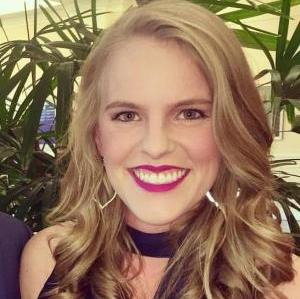
Name: Shelbi Fuser (previously Davis)
Email: shelbindavis@yahoo.com
Shleby is a Microbiology Department Supervisor. "My love for micro began at Oklahoma State. The staff, labs and courses only intensified my interest in the subject. I began researching microbiology jobs while still in college and was able to link up with a great advisor, Dana Hatter, who showed me the clinical side of the subject and helped me discover Medical Laboratory Science. I attended Comanche County School of Medical Technology in Lawton, Oklahoma for one full year (July to July). I loved my pathogenic micro lecture and lab. They showed a more clinical side of the subject, and prepared me for what a bench tech does on a regular basis. Clinical microbiology is definitely a puzzle, it takes time and patience to figure out. Once you figure out a patient with a resistant organism or an uncommon organism it is the most rewarding feeling. My advice would be to not rush, have patience. The pay off is worth the wait! Clinical microbiology is one of the most important fields to go in to in a hospital setting. It takes a lot of practice, but it is an exciting and fun career path!"
